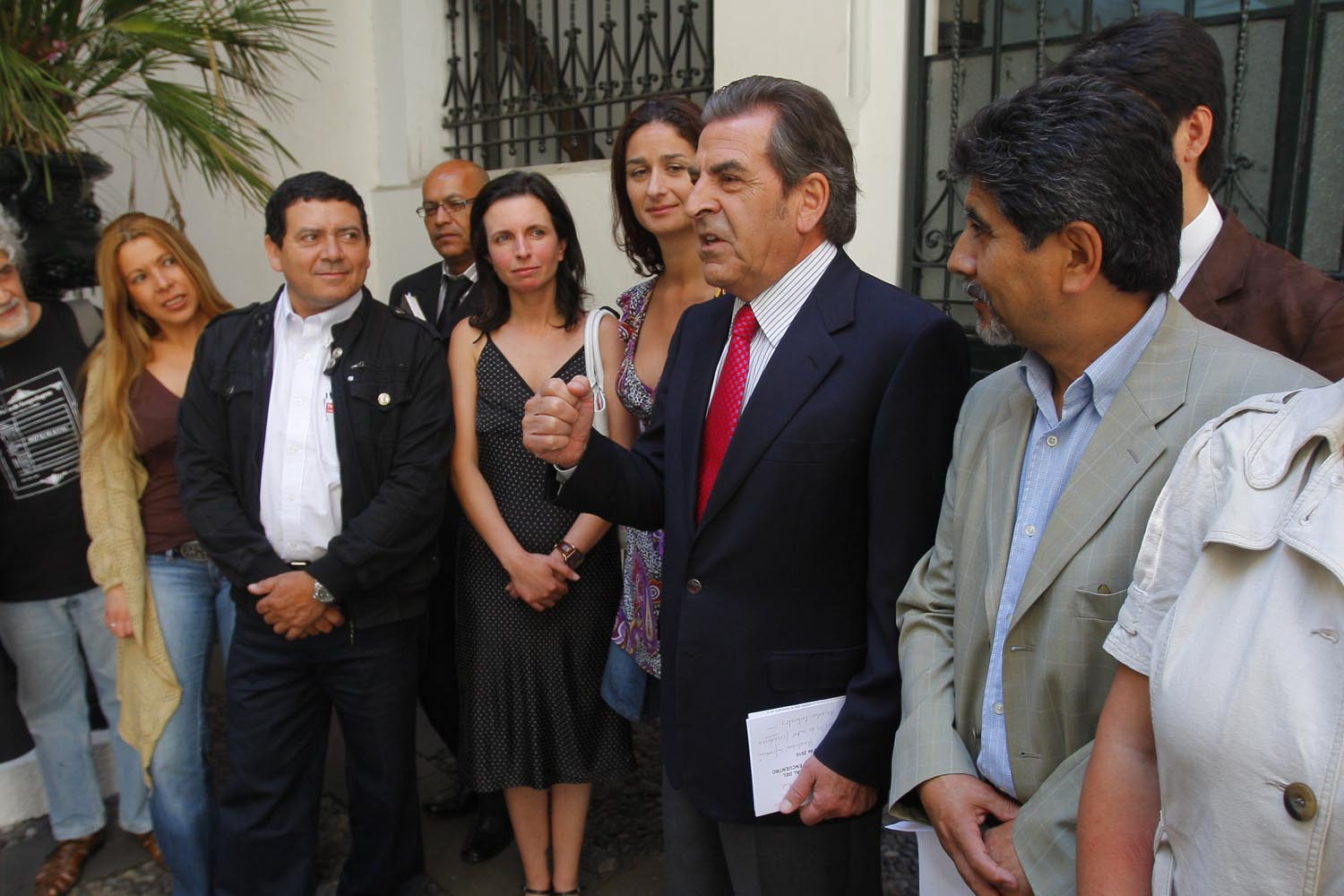
Swiss citizenship for Chile’s Frei criticised

Swiss authorities are facing questions about granting citizenship to Eduardo Frei, a former Chilean president and candidate in the country's national elections.
Ahead of Sunday’s presidential election run-off in the South American country, Frei revealed his newly acquired Swiss nationality.
Critics have described the naturalisation of the 67-year-old Frei – whose father also served as president of Chile in the 1960s – as a violation of equal rights standards and an act of arbitrariness.
Parliamentarians from the rightwing Swiss People’s Party and the centre-left Greens accused the government of giving Frei preferential treatment, according to an article in the Tages-Anzeiger and the Bund newspapers on Tuesday.
Senior members of two Swiss clubs in Chile are also quoted as doubting whether Frei qualified for a Swiss passport as he had never had close ties with the country of his ancestors. Frei’s grandfather came to Chile in 1905 from a small village outside St Gallen.
However, the authorities stressed the citizenship procedure was carried out according to the rules. The Federal Migration Office said Frei had “fulfilled all the conditions for re-naturalisation”.
Frei was invited to a 90-minute interview, he filled in all the necessary forms, answered questions and paid about SFr700 ($688) for a test, according to a member of the Swiss embassy in the Chilean capital Santiago. The Migration Office confirmed that Frei’s citizenship request had been submitted to the embassy on July 31, 2008.
Fast track
The presidential candidate reportedly benefited from a simplified citizenship procedure. This is the sole responsibility of the federal authorities and does not involve cantonal and local governments, confirmed the Federal Migration Office.
Candidates must prove their close ties with Switzerland. This applies to children born to a Swiss parent, but who failed to apply for a Swiss passport themselves when they came of age.
The specific definition of the required relationship is up to the authorities. In practice applicants living in countries far from Switzerland generally need to have made at least two visits to the country over the past ten years, be proficient in one of the four Swiss national languages, have a good knowledge of Switzerland and participate in activities of Swiss expatriate organisations.
However, the Swiss embassy in Chile documents only two visits by Frei to Switzerland in the past 15 years, according to the newspapers.
The politician, who speaks Italian since he studied in the northern Italian city of Milan, is not known as being a keen member of a Swiss club, although his record allegedly shows that he has been in regular contact with the Swiss ambassador to Santiago.

More
Swiss Abroad
No clue
The Migration Office said that Frei’s application had been studied, found to comply with legal conditions, and accepted on December 18, 2008.
It said St Gallen – his “home canton” had been informed about the naturalisation process, as the law required. It was up to the canton to keep the home commune informed, the migration body said. The federal authorities had been accused of failing to inform the mayor of the village of Nesslau-Krummenau that the Chilean politician had been granted citizenship.
The mayor, Rolf Huber, confirmed his local government had had no say in the citizenship procedure, which as a rule involves the federal, cantonal and local authorities.
But Huber is unshaken. “It is wonderful to have such a prominent new citizen,” he told swissinfo.ch.
Nesslau-Krummenau, a rural commune in the Toggenburg valley about 60 kilometres south of St Gallen, has about 3,350 residents.
Proud
For his part Frei told a news conference in Santiago earlier this week: “I feel very proud when I tell people that in the Swiss village where my grandfather was born there is a main square called The Presidents. It pays homage to the son and grandson of the immigrant who left this region in 1900.”
Frei told swissinfo.ch that his new nationality began to take shape in 2008 during a Swiss delegation visit to the Chilean parliament.
The then speaker of the Senate, he expressed his wish to acquire the nationality of his paternal grandfather, Eduard Frei Schilinz.
“I told them that I know birth certificates of each of my ancestors, because in St Gallen there is a record which has existed since 1531. It shows all the generations of my family.”
His grandfather married a Chilean woman, and their son, Eduardo Frei Montalva, who later became president, received Swiss citizenship.
Frei added that during his own period in office as president (1994-2000) he travelled to the alpine country and had the opportunity of visiting the square.
“That day the whole village was in the street, with children waving Swiss and Chilean flags. I felt very privileged to receive this honour,” he said.
Urs Geiser, swissinfo.ch (With input from Simon Bradley and Mariel Jara)
Last year more than 45,000 people were granted Swiss citizenship.
197 of them benefited from a fast-track procedure , according to 2008 figures by the Migration Office.
The fee for a re-naturalisation is about SFr700.
Eduardo Frei stands as candidate for the centre-left Concertación coalition in Sunday’s run-off presidential elections. His opponent is the rightwing businessman Sebastian Piñera.
The 67-year-old Frei was president between 1994 and 2000 and is currently senator for the Los Ríos region.
Frei is a son of the former Chilean president, Eduardo Frei Montalva, who served between 1964 and 1970. He also had dual Swiss and Chilean citizenship.

In compliance with the JTI standards
More: SWI swissinfo.ch certified by the Journalism Trust Initiative




























You can find an overview of ongoing debates with our journalists here . Please join us!
If you want to start a conversation about a topic raised in this article or want to report factual errors, email us at english@swissinfo.ch.